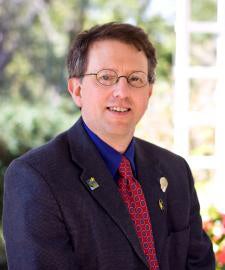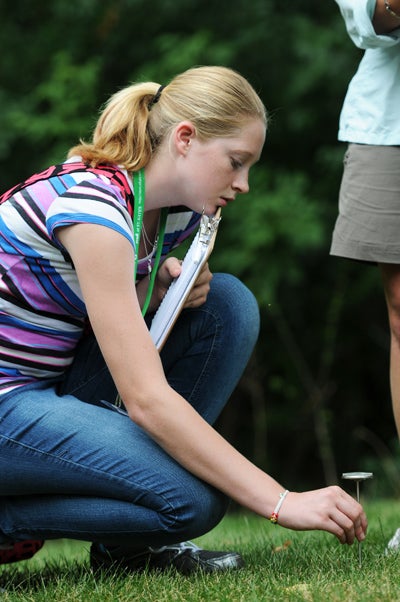New direction for GLOBE
Anthony Murphy, a leader in science/tech education, takes helm of program
Sep 25, 2012 - by Staff
Sep 25, 2012 - by Staff
September 25, 2012 | A nationally recognized innovator in teacher training and science education has been chosen as the new director of the Global Learning and Observations to Benefit the Environment (GLOBE) Program, which is headquartered at UCAR.

Anthony "Tony" Murphy
Anthony “Tony” Murphy moved to UCAR on September 24 from St. Catherine University in St. Paul, Minnesota, where he served as executive director of the National Center for STEM Elementary Education. (The STEM acronym denotes science, technology, engineering, and mathematics.)
Murphy’s expertise meshes well with the goals of GLOBE, which connects students, teachers, and scientists from around the world through hands-on learning to better understand, sustain, and improve Earth’s environment at local, regional, and global scales. More than 1.5 million students and 59,000 trained teachers from more than 25,000 schools in 112 countries have participated in GLOBE since the program began in 1995.
“Tony Murphy represents a significant move forward,” says UCAR president Tom Bogdan. “He brings a powerful blend of experience and leadership in the fields of science, technology, and environmental education to GLOBE. His leadership will further ensure the continued success of the program, and we look forward to strengthening the ties between scientists and GLOBE students and teachers around the world.”
Murphy succeeds Hanne Mauriello, who served as acting director following the death of Andy Tasker earlier this year. “As a longtime GLOBE partner, Tony is keenly aware of the value of GLOBE,” Mauriello says. “I have great confidence that he will provide GLOBE with distinguished leadership.”
While at St. Catherine University, Murphy developed a model for pre-service teacher training that structures science teaching with age-appropriate investigations of atmosphere, hydrology, and soils that employ GLOBE protocols. In addition, Murphy played an integral role in developing the university’s STEM center into the nation’s only elementary education department that requires STEM certification of all graduates.

A student takes soil temperature using GLOBE protocols at the GLOBE Annual Partner Meeting, held this July in St. Paul, Minnesota. (Photo courtesy the GLOBE Program.)
Murphy has been associated with GLOBE since the program’s inception, including through his role as a Knauss Policy Fellow with NOAA. “For more than 15 years, I’ve had the fortunate opportunity to witness the tremendous growth of the GLOBE Program and its impact on both the education and science communities,” says Murphy.
Funded primarily by NASA with support from NOAA and NSF,GLOBE is an innovative way for teachers to get students of all ages excited about scientific discovery, locally and globally. To date, more than 23 million measurements have been contributed to the GLOBE database, creating meaningful, standardized, global research-quality data sets that can be used in support of student and professional scientific research.
GLOBE science investigations are divided into five themes: atmosphere, Earth as a system, hydrology, land cover/biology, and soil. The program incorporates extensive hands-on teacher training, an interactive website, social tools, and international partner support. GLOBE is also now in the midst of a two-year Student Climate Research Campaign.
“I am honored to advance the important work of GLOBE and collaborate with its impressive network of international partners,” says Murphy. “Together we can expand the reach of the program and unite even more teachers, students, and scientists from around the world with common studies of Earth system science.”